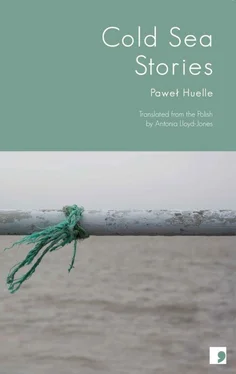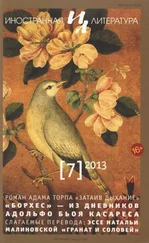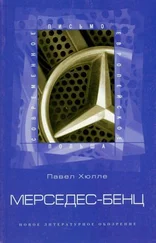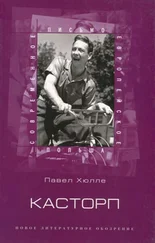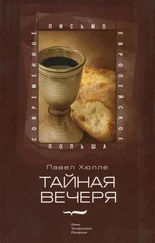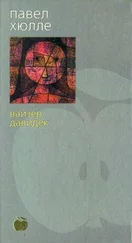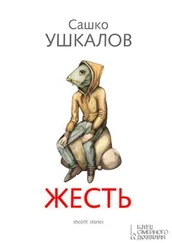She had come to the city sooner than autumn. Hanna had greeted her warmly, Jakub coldly. Her idea of obtaining a Polish certificate for permanent residence had proved disastrous. Immediately she had those two and a horde of officials against her. How was she to prove she wasn’t a German? She had no documents, nor did she know Polish, and her statements that once, long ago, her ancestors - who were persecuted in the Netherlands - had come to this very place, prompted at best an embittered smile, more often irritation. Finally, one autumn day, amid a crowd of Germans, all three of them had turned up at the freight station. She recalled that there weren’t many men in the carriage. As soon as the train moved off, one of them started to hum a song, ‘ Wer hat dich, du schöner Wald, Aufgebaut so hoch da droben? ’ [1] Who built you so high aloft, O lovely forest?
Mr Hook invited us to lunch at the park restaurant.
‘Then, once they were all singing,’ she finished telling me at table, ‘though not as loud as their tradition bids the Germans, I noticed that Hanna and Jakub were singing too. Believe me, I alone was biting my lip to stop myself from screaming in horror, hatred and disgust.’
‘My dear, that’s enough now,’ said Mr Hook, laying his hand on hers. ‘I’m sure Mr Helke will describe it… It’s colourful material,’ he said, addressing me, ‘rich, but tragic, altogether fascinating for a writer, isn’t it, young man?’
I swallowed a chunk of steak.
‘No, Mr Hook,’ I said, ‘my name is not Helke.’
‘Really…?’ His hand, adorned with a silver signet ring, reached for the book. ‘Oh, yes, I’m sorry, but you are German, aren’t you?’
She shot him a black look. Withdrawing into the realm of rumination, he fell silent for a while.
‘What happened after that?’ I asked. For a moment she hesitated.
‘He betrayed me as soon as we arrived in the States. I couldn’t understand why, or what he saw in the obese piano tuner, who was quite a bit older than him. Later, when he left her too, I knew. He took Hanna away with him, and they lived together in Chicago. They had two sons, but he took to drink, and eventually Hanna ran off to the south with the children. He thought he was an artist. But here there were thousands like him. If they let him play in a bar it was all right. Hanna died five years ago. I wasn’t at her funeral. That day, in the train to Germany, I saw them holding hands. Can you believe it? From the moment I stood in the door of the flat holding the violin I knew he loved her, not me. I never told my sister about Ludwig. But he knew it from me, and I don’t know if he ever shouted it out in some drunken scene. If he did, she can’t possibly have believed him. After some time, when he wasn’t with Hanna the King, he called me and said: “Hello, this is Harmensoon, is Miss Wolzke at home today?” But I had stopped being afraid of ghosts long ago. And of damnation too. I no longer believe in anything, when it comes to that sort of thing. What about you? Do you believe in God?’
‘Don’t you think it’s time to go home now?’ interrupted Hook.
‘Do you believe in God?’ she repeated.
‘Yes,’ I said, ‘in spite of all.’
Beyond the Rhododendron Walk there was a rose garden. As Mr Hook pushed the wheelchair it rolled along smoothly, almost noiselessly. She absolutely had to know what the city looked like now, whether bungalows had been built on the dunes, and whether the canals on the polders were regularly cleaned. The botanical garden ended at White Plains Road.
‘We both live near here,’ Mr Hook informed me. ‘My place is next to the gas station, and hers is above the bookstore.’
‘Thank you for coming,’ she said, ‘and please mention Rachela van Dorn – she was the only one to survive the camp and the transports, and she wrote to me afterwards from France. She loved me, really.’
The light changed to green. I watched as they disappeared in the crowd, Mr Hook and she, on the other side of the river of cars.
Two years later, via my publisher, Mr Hook sent me her obituary. Only then did I imagine her, several decades younger, on the road she loved so much.
THE ATTIC ROOM where Lucjan had been dying for a few months now did not smell of must or medicine, just antiquity. I knew that as soon as he heard my footsteps in the corridor he would immediately turn his armchair to face the door, so as I came in I would see his face, graced with a smile cultivated through long suffering. As I heated some food for him or washed the dishes he would ask me questions: ‘Do you remember what the Romans called a side road?’ Or ‘How would you translate this: Etiam periere ruinae? ’ He was as pleased as Punch when I gave the right answers. ‘ Diverticulum , as opposed to via ,’ I said slowly. ‘It didn’t lead to the capital but to a country estate. Like the one Horace was given by Maecenas. Etiam periere ruinae ? I think that’s from Lucan,’ I said, as I served him warmed-up pierogi, ‘and it means “not even ruins will remain”.’ Over the cake my mother baked for him each week, Lucjan talked about his final work. It was a commentary on T he Aeneid , a sort of dictionary, in which he was making an alphabetical list of concepts that in his opinion were unclear, and had only ever been badly translated or completely overlooked by the Polish publishers. As we were finishing our tea, Lucjan moved his chair to the desk, where he showed me a page written in Braille, cranked out on a special machine. I didn’t know that alphabet and so, lightly tracing his right index finger over the bumps, he read me his output for the past few days. Afterwards I would help him to get up from his chair, and we would stand at the window where, outside, against the rooftops of Wrzeszcz and some slender poplar trees, the clouds were drifting by. And then Lucjan would take off his dark glasses, turn his face to the light and say: ‘Can you describe them for me?’
‘Today there are some nice, plump cumulus clouds,’ I replied, ‘but they haven’t any autumn heaviness yet. It’ll be a few weeks before they go grey.’
Sometimes, as I was on my way out, on the stairs or in the doorway I ran into Mrs Truda, who gave him his injections. I only attended this operation once, and I remember being quite unable to tear my eyes off her forearm, where a purple number from Stuthoff was visible. In the place where Lucjan had spent fifteen years they didn’t tattoo the prisoners, but his skin bore a record of the past too. On his hands and cheeks – to his great shame in the days when he could still see his face reflected in the mirror – the marks of frostbite showed.
That day, when I was due to meet Fredek by the shipyard at four, Lucjan did not ask me any questions. He was absorbed in his own thoughts, and not even my news about the strike could restore his energy. Only once we were standing in our usual place by the window, where outside in the bright blue sky not a single cloud was passing, did he softly recite a line of Virgil with perfect emphasis: ‘ Ibant obscuri sola sub nocte per umbras ,’ and then asked quickly: ‘Hasn’t anything come from Israel?’ I had to sadden him with a negative reply, and I knew how greatly disappointed he was. When he went blind, Lucjan had donated his entire library to the university, since when we had been acquiring books in Braille for him with extreme difficulty, because Greek and Latin, like Sanskrit and Hebrew, were an absolute rarity among editions for the blind. Homer was sent to him from London, and he received the Gospels in Greek from Los Angeles. Virgil and Seneca arrived in Wrzeszcz from Bologna, and he was sent a selection of Aristotle’s works – by way of a Papal foundation – from Rome. Now he was waiting for a Hebrew Bible, which, like all the other major religious books, he already knew in the original language and could translate any randomly chosen extract on demand.
Читать дальше
